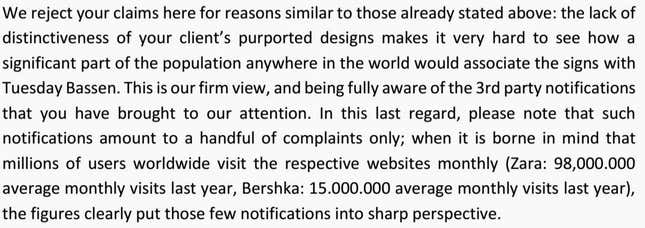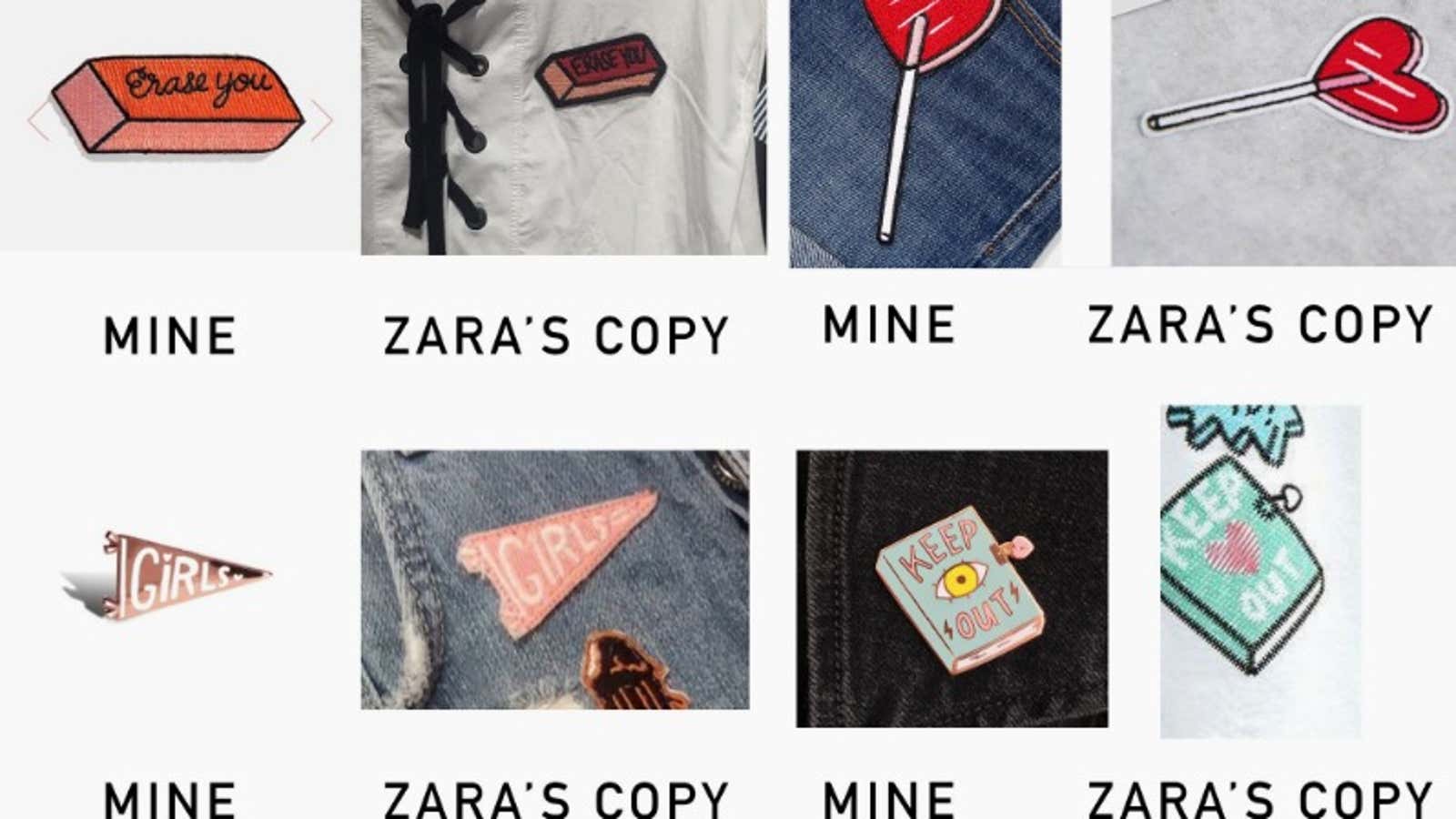Spanish fast-fashion giant Zara has something of a reputation for copying. Often the alleged targets for imitation are big labels, such as luxury brand Céline, or hyped lines such as Kanye West’s. But what happens when it’s an independent artist who doesn’t have the same resources or recognition?
Yesterday (July 19), a Los Angeles-based illustrator named Tuesday Bassen took to Twitter to accuse Zara of repeatedly copying her work. What prompted her public accusation was a letter she claims to have received from Zara’s legal team that dismissed earlier complaints of copying, saying that her work wasn’t recognizably hers.
According to an excerpt she posted of the letter, Bassen’s designs’ ”lack of distinctiveness” means people wouldn’t associate the work with her anyway. It then states that the notices from fans that she brought to their attention amount to just a “handful of complaints”—compared to the millions of visitors that Zara’s website receives. (The site Bershka that is also mentioned in the letter is owned by Zara’s parent company, Inditex.)

We’ve reached out to Inditex for comment and to confirm whether it sent Bassen the letter. We will update this post with any new information.
Bassen and others on Twitter have expressed outrage over the alleged response. As she sees it, the company dismissed her claim because she’s “an indie artist and they’re a major corporation.”
Susan Scafidi, the director of the Fashion Law Institute, says copyright protection can exist regardless of how prominent the creator is, but it does have limitations. “An author can’t own even the cleverest idea, just her specific expression of it,” she tells Quartz. “In other words, Tuesday can’t own the idea of a heart-shaped lollipop, incidentally something that also exists in real life, just her particular drawing of one.” The claim in the alleged letter is that Bassen’s designs aren’t distinctive enough to warrant that protection.
Trademark protection could come into play, but it’s less likely in this case unless Bassen were using a design as her logo or signature. There’s a subset of US trademark law called trade dress protection that covers designs, but it only applies when a design is so well-known that it unmistakably indicates its source, like the distinctive red soles on Christian Louboutin shoes.
Bassen, who has done work for a number of well-known brands, including Nike, Adidas, Playboy, and the New Yorker, told Racked that Zara has been accused of stealing the work of several other indie artists. It’s an allegation that brands including Forever 21 and Urban Outfitters have also faced over the years.
Scafidi points to the case of Johnny Cupcakes a decade ago. He was an independent artist who claimed Urban Outfitters ripped off his work, and ended up becoming one of the first designers to use the internet to fight this sort of copying.
“The good news is that Tuesday’s current strategy—following in the footsteps of Johnny Cupcakes and others—can help to level the playing field for indie designers without substantial legal budgets,” Scafidi says. Bassen posted on Twitter that she has already spent $2,000 in legal fees, but plans to keep fighting.
